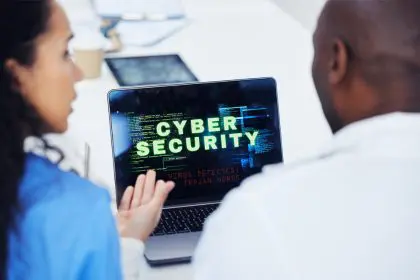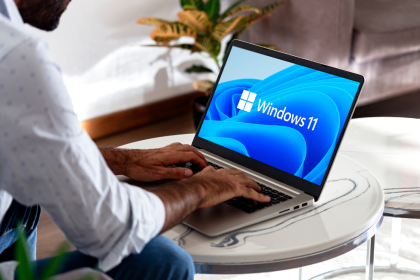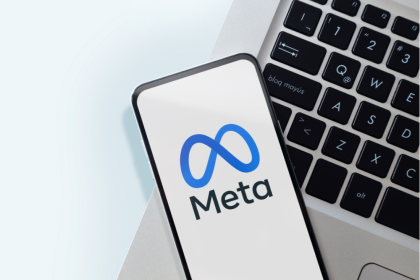In today’s digital age, safeguarding your bank account passwords has become more critical than ever. Cybersecurity measures are essential to protect your financial information from malicious attacks and unauthorized access. This article will explore why cybersecurity is crucial for protecting your bank account passwords, the potential risks of weak cybersecurity and practical steps you can take to enhance your online security.
Understanding the importance of cybersecurity
Cybersecurity refers to the practices and technologies designed to protect computers, networks and data from unauthorized access, attacks and damage. With the increasing reliance on online banking and digital transactions, the need for robust cybersecurity measures has never been greater. Cybercriminals are constantly evolving their tactics, making it essential for individuals to stay vigilant and proactive in protecting their sensitive information.
The role of cybersecurity in protecting bank account passwords
Bank account passwords are the first line of defense against unauthorized access to your financial information. Strong cybersecurity practices ensure that these passwords remain secure and out of the reach of cybercriminals. Here are some key reasons why cybersecurity is crucial for protecting your bank account passwords:
- Preventing unauthorized access: Effective cybersecurity measures can prevent unauthorized individuals from accessing your bank account information. This includes using strong passwords, enabling multifactor authentication and regularly updating your security settings.
- Protecting against phishing attacks: Phishing attacks are a common method used by cybercriminals to steal bank account passwords. Cybersecurity awareness and education can help individuals recognize and avoid phishing attempts, thereby protecting their passwords from being compromised.
- Securing personal devices: Ensuring that your personal devices — such as smartphones and computers — are secure is vital for protecting your bank account passwords. Regular software updates, antivirus programs and secure connections all contribute to a robust cybersecurity posture.
Risks of weak cybersecurity practices
Failing to implement adequate cybersecurity measures can expose your bank account passwords to significant risks. Understanding these risks can help underscore the importance of maintaining strong cybersecurity practices.
Common cybersecurity threats
Several common threats can compromise your bank account passwords if proper cybersecurity measures are not in place:
- Malware: Malicious software, or malware, can infect your devices and steal sensitive information, including bank account passwords. Malware can be introduced through infected email attachments, malicious websites or software downloads.
- Keyloggers: Keyloggers are a type of malware that records keystrokes on your device, capturing your bank account passwords as you type them. Without adequate cybersecurity measures, your passwords can be easily intercepted by keyloggers.
- Social engineering: Cybercriminals often use social engineering tactics to trick individuals into revealing their bank account passwords. This can include impersonating legitimate organizations or individuals to gain trust and access sensitive information.
- Public Wi-Fi vulnerabilities: Using public Wi-Fi networks without proper security precautions can expose your bank account passwords to interception by cybercriminals. Public Wi-Fi networks are often unsecured, making them a prime target for hackers.
Consequences of compromised passwords
The consequences of compromised bank account passwords can be severe and far-reaching. Some potential outcomes include:
- Financial loss: Unauthorized access to your bank accounts can result in significant financial loss, as cybercriminals can transfer funds, make unauthorized purchases or empty your accounts.
- Identity theft: Once cybercriminals have access to your bank account passwords, they can use this information to commit identity theft, opening new accounts, taking out loans or conducting other fraudulent activities in your name.
- Damage to credit score: Unauthorized transactions and identity theft can damage your credit score, making it difficult to obtain loans, credit cards or other financial services in the future.
- Emotional distress: The stress and anxiety caused by financial loss and identity theft can have a significant impact on your mental well-being and overall quality of life.
Practical steps to enhance cybersecurity
Protecting your bank account passwords requires a proactive approach to cybersecurity. Here are some practical steps to enhance your online security and safeguard your financial information.
Creating strong passwords
One of the most fundamental aspects of cybersecurity is creating strong, unique passwords for your bank accounts. Here are some tips for creating effective passwords:
- Length and complexity: Use long passwords with a mix of uppercase and lowercase letters, numbers and special characters. Avoid using easily guessable information, such as your name, birthdate or common words.
- Password manager: Consider using a password manager to generate and store complex passwords securely. Password managers can help you avoid reusing passwords across multiple accounts, which can reduce the risk of a single compromised password leading to multiple account breaches.
- Regular updates: Change your passwords regularly and avoid using the same password for extended periods. Regular updates can minimize the risk of compromised passwords being used by cybercriminals.
Enabling multifactor authentication
Multifactor authentication (MFA) adds an extra layer of security to your bank accounts by requiring additional verification beyond just your password. This can include a fingerprint scan, a one-time code sent to your mobile device or other forms of authentication. Enabling MFA can significantly reduce the risk of unauthorized access to your bank accounts.
Securing personal devices
Ensuring that your personal devices are secure is essential for protecting your bank account passwords. Here are some steps to take:
- Software updates: Regularly update your operating system, browser and other software to protect against known vulnerabilities and security threats.
- Antivirus and anti-malware software: Install reputable antivirus and anti-malware software on your devices to detect and remove malicious threats.
- Secure connections: Use secure, encrypted connections (such as VPNs) when accessing your bank accounts online, especially when using public Wi-Fi networks.
Recognizing and avoiding phishing attempts
Being able to recognize and avoid phishing attempts is crucial for protecting your bank account passwords. Here are some tips to help you stay vigilant:
- Verify email sources: Always verify the source of emails or messages before clicking on links or providing sensitive information. Look for signs of phishing, such as suspicious email addresses, grammatical errors or urgent requests for personal information.
- Direct access: Access your bank accounts directly through the official website or mobile app rather than clicking on links in emails or messages.
- Educate yourself: Stay informed about common phishing tactics and red flags to watch for. Many organizations provide resources and training to help individuals recognize and avoid phishing attempts.
Using cybersecurity for your financial benefit
Cybersecurity is crucial for protecting your bank account passwords and safeguarding your financial information. By understanding the importance of cybersecurity, recognizing common threats and implementing practical steps to enhance your online security, you can significantly reduce the risk of unauthorized access to your bank accounts. Taking a proactive approach to cybersecurity not only protects your financial assets but also provides peace of mind in an increasingly digital world.
This story was created using AI technology.















